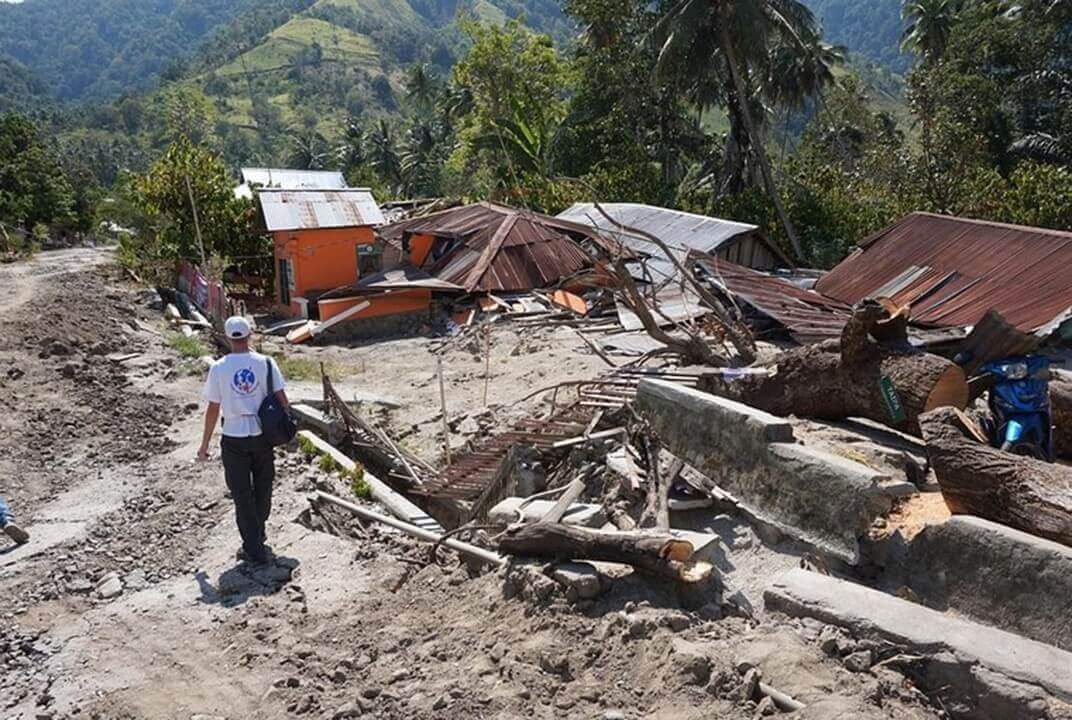World Space Week looks at how satellites improve life
Corporate
Satellites Improve Life is the theme of World Space Week 2020 – a statement Inmarsat puts into action every single day.
The annual United Nations-declared celebration of space, held every 4-10 October, sees space agencies and organisations, museums and planetaria creating a huge range of educational and outreach activities. Last year, over 8,000 events were held in 96 countries. This year, many events will be virtual, making them accessible by even more people.
Inmarsat’s satellite networks not only improve lives – they save lives. We were founded in 1979 specifically to provide reliable emergency communications at sea, creating the satellite backbone of the Global Maritime Distress and Safety System (GMDSS). On a daily basis we protect 1.65 million seafarers; connect an average of six vessels in peril with the nearest onshore rescue authorities; and broadcast 1,000 Maritime Safety Information (MSI) and Search and Rescue (SAR) messages, warning ships of danger and requesting their assistance when a nearby vessel is in trouble.
Continuous investment
Over the past 40 years, our satellites’ power, reach and capabilities have grown enormously, thanks to continuous innovation and investment, which means today they bring a scale of connectivity to people, organisations and machines that was unimaginable when we started out.
At sea, satellite communications are routinely used for far more than emergencies. All sizes of vessel can access our networks for a huge range of mobile voice and data applications. The fisherman trawling for shrimp in the harsh Barents Sea can chart the optimum route, avoid the worst weather and get the best price for his catch before he returns to port. The global bulk carrier fleet management company can not only operate far more efficiently and sustainably but offer its crew a morale-boosting, always-on internet connection to family and friends.
In the air, our connectivity helps aircraft fly more safely and efficiently while keeping passengers entertained with inflight Wi-Fi. Right now, we are working with the European Space Agency on the ground-breaking Iris Programme to modernise air traffic management of the congested skies above Europe. Providing 4D trajectories of an aircraft, Iris will make flights more efficient by reducing flight delays, saving fuel and benefiting the environment, as well as offering total security for aircraft communications.
Humanitarian relief
And on the ground, satellite communications mean no corner of the Earth is now out of bounds. This means our partner Télécoms Sans Frontières can set up instant emergency communication centres to coordinate humanitarian relief efforts following natural disasters. Farmers in drought-hit Australia can monitor irrigation systems remotely to make best use of every precious drop of water. Railway companies in South America can stay in touch with train drivers in vast terrestrial connectivity dead zones.
This year, the COVID-19 pandemic has underlined just how vital connectivity is in our modern world. Keeping the global supply chain moving. Keeping organisations operating remotely. Keeping seafarers stranded at sea in touch with home.
With the arrival of the 5G era this importance is only going to become more pronounced. Satellites have a critical role to play in delivering the benefits of the new generation mobile technology into the oceans, the skies and communities far away from the highly populated and well-resourced regions which the mobile operators focus on. Here is an opportunity to help close the digital divide which currently sees 49 per cent of the world’s population unable to access the internet, cutting them off from a wealth of economic and societal advantages.
Inspiring people
Inmarsat Chief Executive Officer Rupert Pearce said: “We support World Space Week’s mission to educate people – especially young people who may well be inspired to join the next generation of pioneers – about the importance of space in our daily lives.
“At Inmarsat we are proud of our safety heritage and also of the many ways that our satellites power services that improve, protect and enrich the lives of many thousands of people around the world – and of the potential to open up a truly global 5G digital society.”

